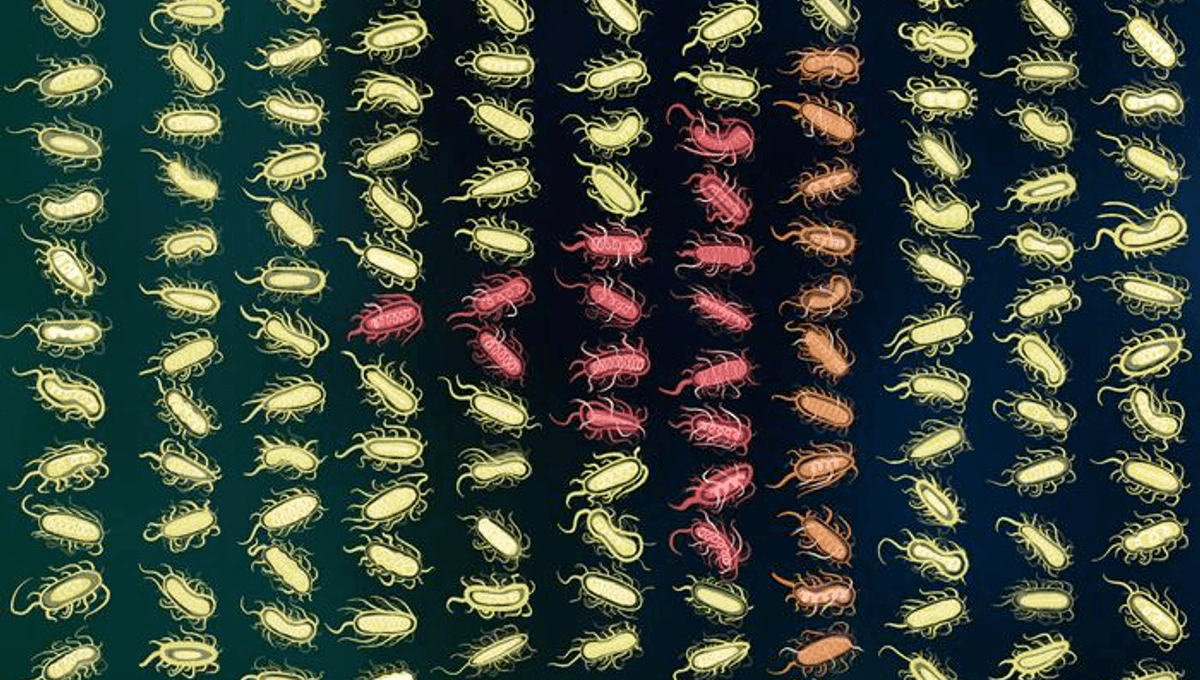
Bacteria hold a record of how their environment affects them, a new study suggests, and this can be passed on to subsequent generations when they divide. The discovery is one among many in recent years that have complicated the ways biologists think about evolution and the transmission of characteristics. It could also have important medical applications, for example in tackling antibiotic resistance.
Once Darwin’s theory of natural selection, combined with Gregor Mendel’s evidence for dominant and recessive genes, had swept creationist ideas to the fringes, attributing everything to genes became all the rage. The solution to the structure and replication of DNA reinforced this. However, problems with these relatively simple stories started to appear. The way genes can be silenced or activated by environmental conditions through epigenetics forms one example of this more nuanced picture, but others are less well understood.
“A central assumption in bacterial biology is that heritable physical characteristics are determined primarily by DNA,” said study senior author Professor Adilson Motter of Northwestern University in a statement. “But, from the perspective of complex systems, we know that information also can be stored at the level of the network of regulatory relationships among genes. We wanted to explore whether there are characteristics transmitted from parents to offspring that are not encoded in DNA, but rather in the regulatory network itself.”
The team explored this using the well-studied E. coli – one benefit of working with bacteria is they replicate so fast that we can observe many generations before grant funding runs out. It also lacks some of the complicating factors seen in animals and plants, or even yeast, and has a mere 5,000 genes for extra simplicity.
“In the case of complex organisms, the challenge lies in disentangling confounding factors such as survivor bias,” Motter said. “But perhaps we can isolate the causes for the simplest single-cell organisms, since we can control their environment and interrogate their genetics. If we observe something in this case, we can attribute the origin of non-genetic inheritance to a limited number of possibilities — in particular, changes in gene regulation.”
E. coli’s genes can be what the team refers to as “temporarily perturbed”, either through a transient knockout or transient overexpression. When this occurs, subsequent generations will have the same genes as their predecessors before perturbation, but Motter and co-authors showed the cell may not look and behave the same way.
Perturbation does not always produce long-term effects, and the team was able to identify factors that increased the chances. For example, when a perturbed gene is located close to a “strongly connected component” of the regulatory network, it is more likely that the effects will carry on, even after the gene’s usual status has been restored.
The team conducted targeted interventions to achieve these perturbations, but think natural changes to the environments in which E. coli live could do similar things, although probably much less efficiently.
To see something analogous in humans, co-author Dr Thomas Wytock used the example of way Dutch people today are more likely to be overweight if their fathers were exposed to famine caused by World War II in utero. Those living in such a wealthy country today are unlikely to have suffered food deprivation, so there is no direct environmental effect. Likewise, the genes passed on are no different depending on whether a father was a fetus at the height of the famine or once the crisis passed. Nevertheless, a biological memory may last generations, in this case warning that food shortages may come, so the body should hoard the calories it can.
Although we know humans, other animals, and plants can do this, but our notions of how are hazy. E. coli research may help. However, the authors also hope there might be direct applications of the knowledge gained, for example in alterations on bacteria so that, should descendants become a problem, they will be susceptible to antibiotics.
The study is published open access in the journal Science Advances
Source Link: Bacteria Pass "Memories" Of Perturbed Genes To Their Descendants